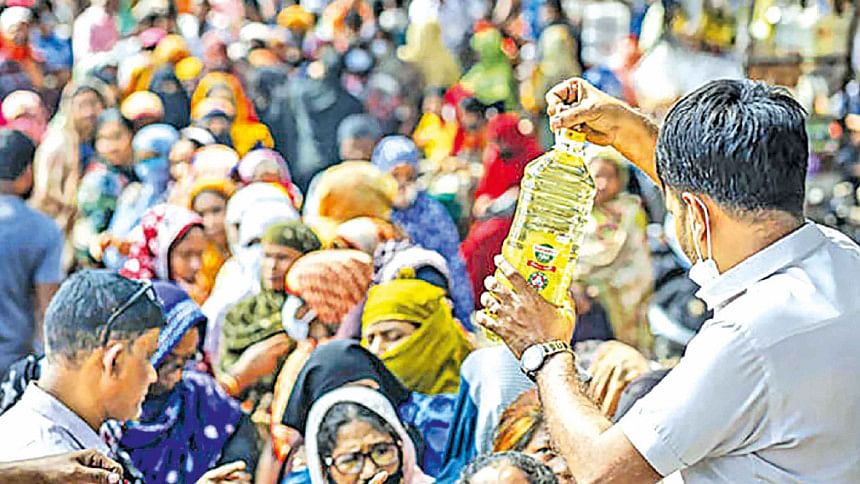On price hike and legal redress

In our country, unusual price hike for essential commodities has been used as a magic wand by the business class. They exploit the situation by creating an artificial crisis and making a profit at the expense of ordinary people's hard-earned money. Foodstuffs are sold according to the whimsical will of the profit makers who are paying no heed to the price fixed by the government. The ongoing state is creating a hopeless situation for the ordinary people of our country who are struggling to manage their daily expenses. At present, 35% of the population of Bangladesh remains food insecure. Furthermore, a new class of poor is created due to massive price hike which is an estimated 18.54% of the total population, according to a report by Power and Participation Research Centre and Brac Institute of Governance and Development.
Foodstuffs fall within the definition of essential commodity as per section 2 of the Control of Essential Commodities Act 1956. Under this Act, the government of Bangladesh is given the responsibility of equitable distribution of essential commodities at fair prices. As per section 3 of the Act, the government of Bangladesh has the power to control the price at which any essential commodity may be bought or sold. Section 6 of the same Act has a provision for imprisonment or fine or both for the contravention of the order of the government by any person. In spite of these provisions, we see no strict action by the government to improve the situation. On the other hand, consumers are barely aware of their rights as consumers. Section 38 of the Consumer Rights Protection Act, 2009 obliges the seller to display the prices of products to the buyers as per the government order and adds penalties for any omission. Section 40 of the same Act provides penalties for those who sell products at a higher price than the actual price. Also, section 76 of the Act includes the provision of making complaints to the authority regarding any violation of the rights of the consumers. These mean that people have legal protection against the unjustified rise in prices but they are not benefitted because of the poor implementation of these laws.
Food is a basic necessity of life and the right to food is closely intertwined with our human existence. This very existence is threatened when prices of foodstuffs go beyond our purchasing power. Thus, this is high time the government played a sincere role in controlling the prices of foods.
The writers are students of law, University of Dhaka.

 For all latest news, follow The Daily Star's Google News channel.
For all latest news, follow The Daily Star's Google News channel. 



Comments